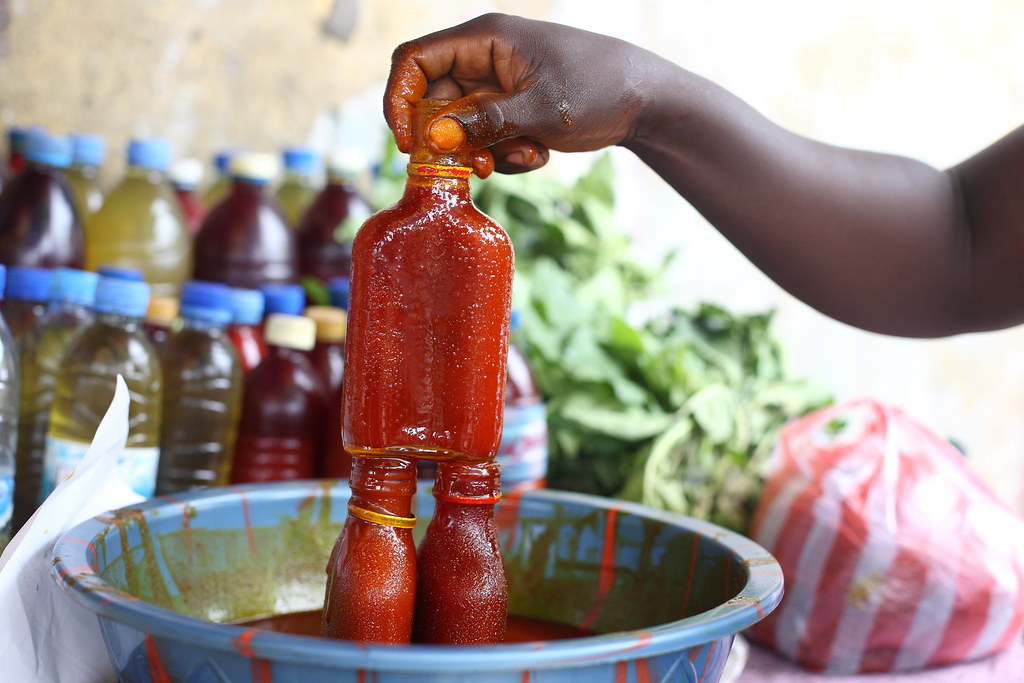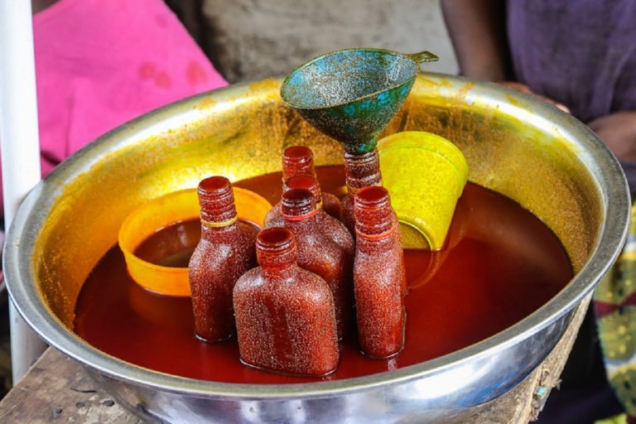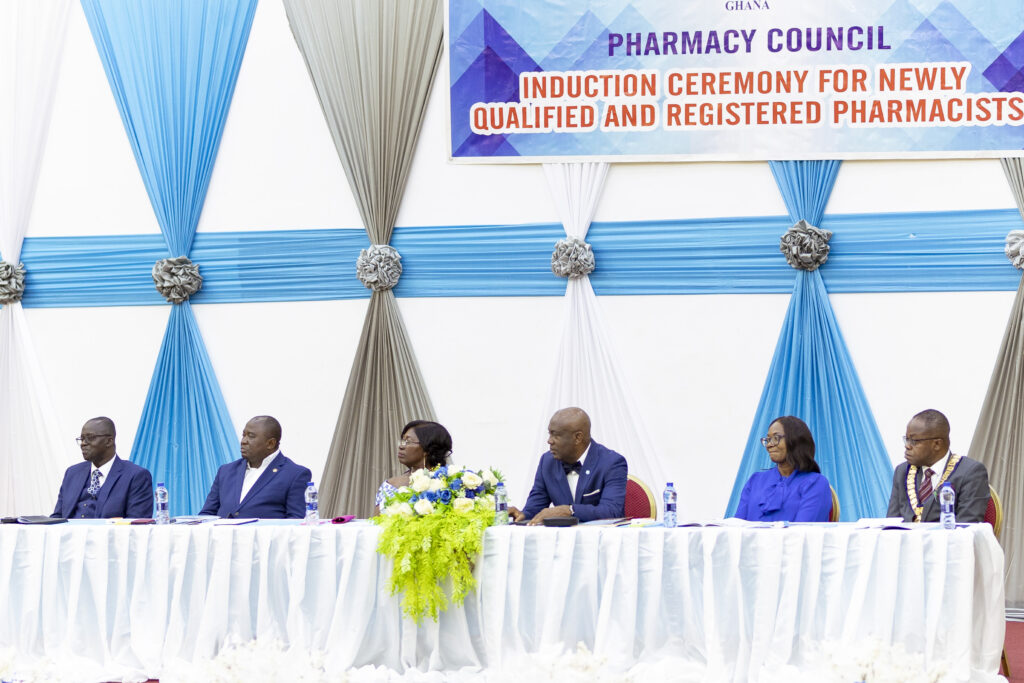
Dr. Daniel Amaning Danquah, the Acting Registrar of the Council, emphasized the importance of bridging the gap between urban and rural areas in the distribution of health professionals to advance the country’s progress towards Sustainable Development Goal (SDG) Three – Health and Wellbeing.
Speaking at the induction ceremony in Accra last Wednesday, themed “Universal health coverage: Embracing the digital frontiers to leverage access to quality healthcare,” Dr. Danquah highlighted the need for equitable distribution of health professionals to ensure progress.
The ceremony saw the induction of 364 new pharmacists: 283 from Kwame Nkrumah University of Science and Technology (KNUST), 36 from the University of Health and Allied Sciences (UHAS), 18 from Central University, 10 from the University of Ghana, and 17 from the diaspora.
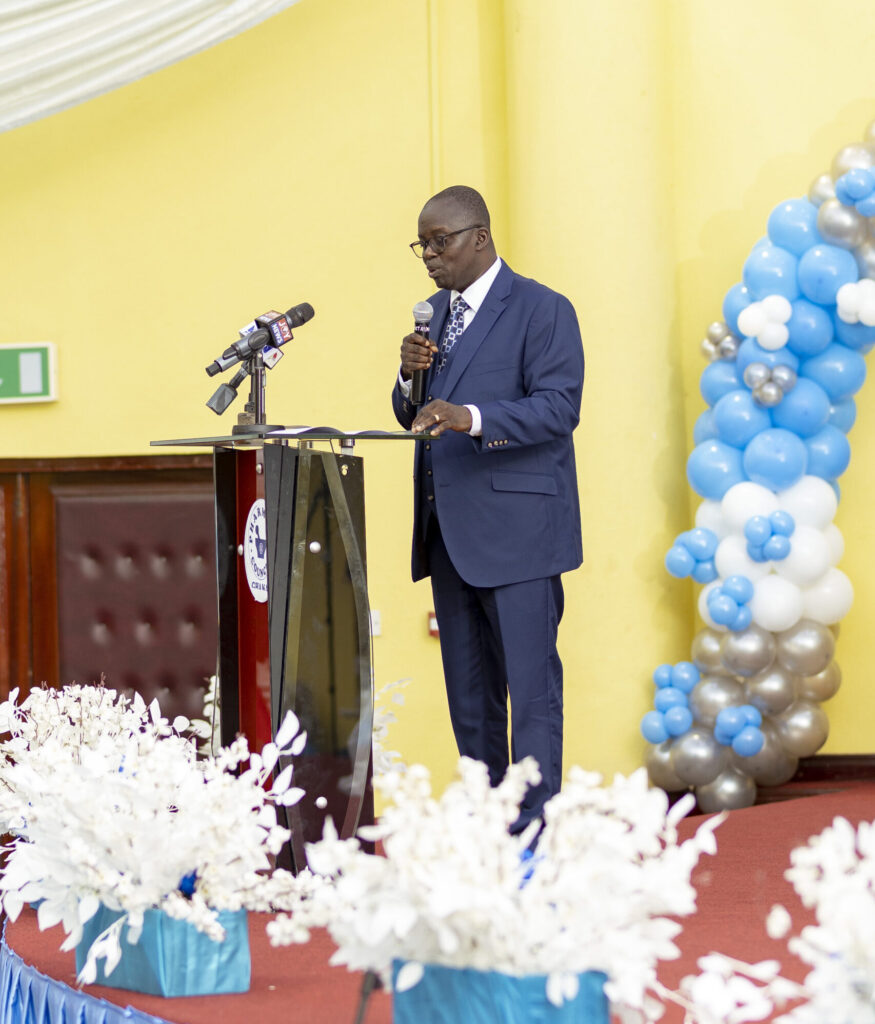
Ceremony Highlights
The event was graced by notable figures including the Chairperson of the Pharmacy Council, Doris Fosu-Hemaa Addae-Afoakwa; the CEO of Rock Chemists Ltd, Thomas Boateng Appiagyei; and the President of the Pharmaceutical Society of Ghana (PSGH), Dr. Samuel Kow Donkoh.
Dr. Danquah urged the new pharmacists to focus on self-development and capacity-building to stay relevant in their profession. He stressed the importance of recognizing potential risks and adverse effects associated with medications and interventions to improve patient outcomes.
He also reminded the inductees to adhere strictly to regulations and best practices guiding pharmacy practice in the country. He warned that the council would enforce practice standards rigorously to promote patient safety and outcomes.
Commitment to Improvement
Deputy Minister of Health, Alexander Kwasi Acquah, reaffirmed the government’s commitment to improving the pharmacist-to-population ratio to meet World Health Organization (WHO) standards of one pharmacist per 2,000 people. The ratio has improved from one pharmacist per 13,000 people in 2015 to one per 7,500 currently. He added that the government is constructing 111 hospitals nationwide, which will employ more pharmacists and further improve the ratio.
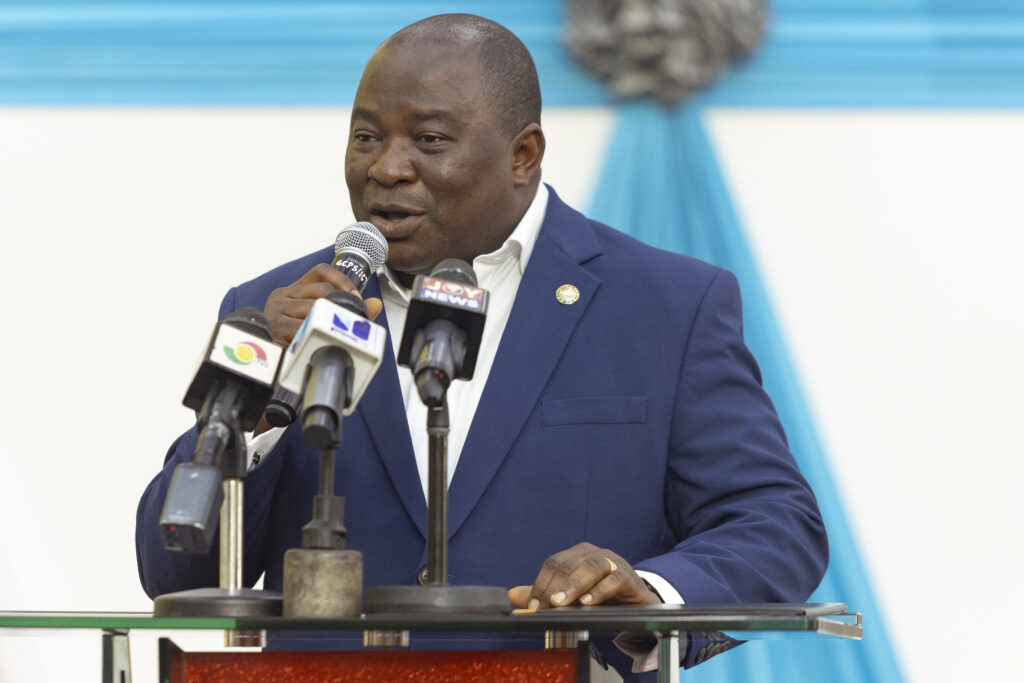
Maintaining Standards
Thomas Boateng Appiagyei emphasized that the increase in pharmacy training institutions should not lead to a decline in standards. He urged practitioners to adhere strictly to industry regulations.
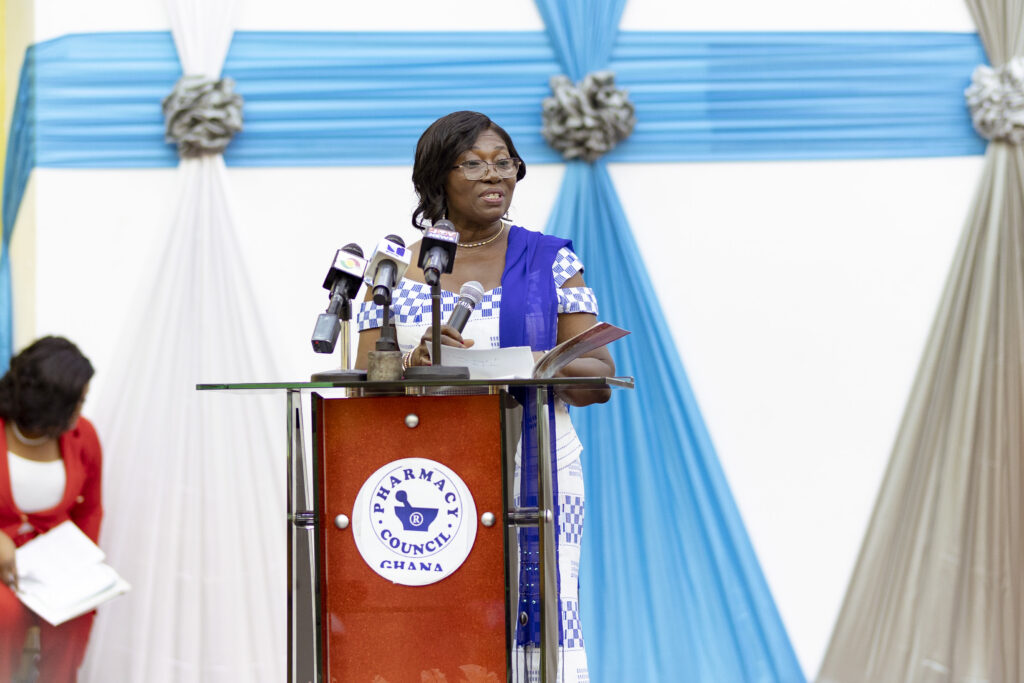
Doris Fosu-Hemaa Addae-Afoakwa encouraged the new pharmacists to incorporate modern digital technologies into their practice to enhance service delivery. She stressed that leveraging digitization is crucial in accelerating the achievement of the SDGs, especially in an era where technology is transforming service delivery across sectors.
Click the link below to find excerpts from the event.
https://web.facebook.com/share/p/4zQJ5xvAUexriDUH
Photo credit: K2SHOTIT


